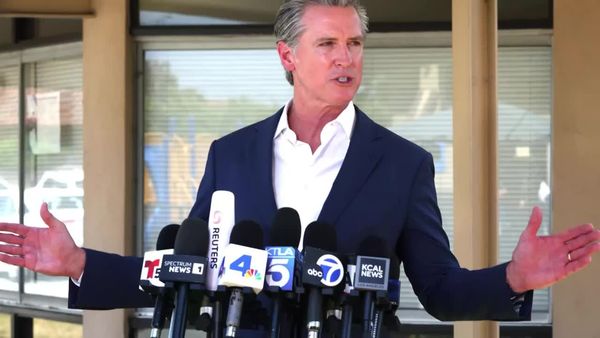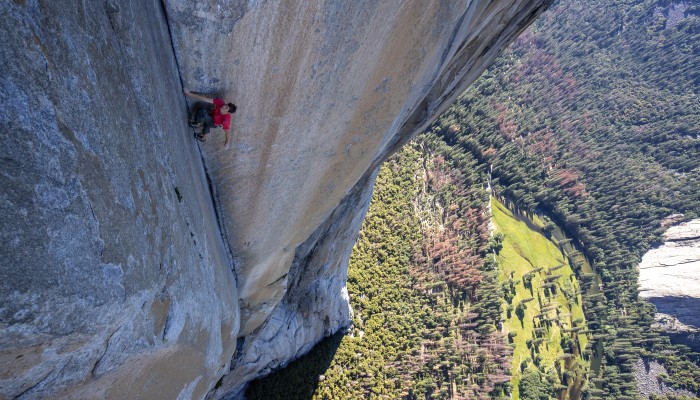
No one had successfully climbed El Capitan – the daunting 900-metre (3,000-foot) vertical granite wall in Yosemite National Park in the United States – without ropes or safety gear until Alex Honnold made his well-rehearsed free solo attempt on June 3, 2017. The climber had methodically practised for a decade before he beat the odds and reached the summit in three hours and 56 minutes.
Academy Award-winning producer and director duo Elizabeth Chai Vasarhelyi and Jimmy Chin captured Honnold’s process that culminated in that stunning feat in the documentary Free Solo.
The film, which most recently collected an Oscar for best documentary feature, is a visually riveting exploration of how to manage acute fear, the mentality of athletes in this high-stakes sport and, most of all, understanding this free soloists’s process that enabled him to attain what was considered an unattainable physical feat.
Honnold is arguably the best free soloist (still) alive; he lives a vagabond existence from a van that revolves around climbing major cliffs. A common response to the documentary is how this climber is able to maintain his calm while clinging to the tiniest of nooks and crannies on a boulder’s terrain while facing a steep vertical drop.
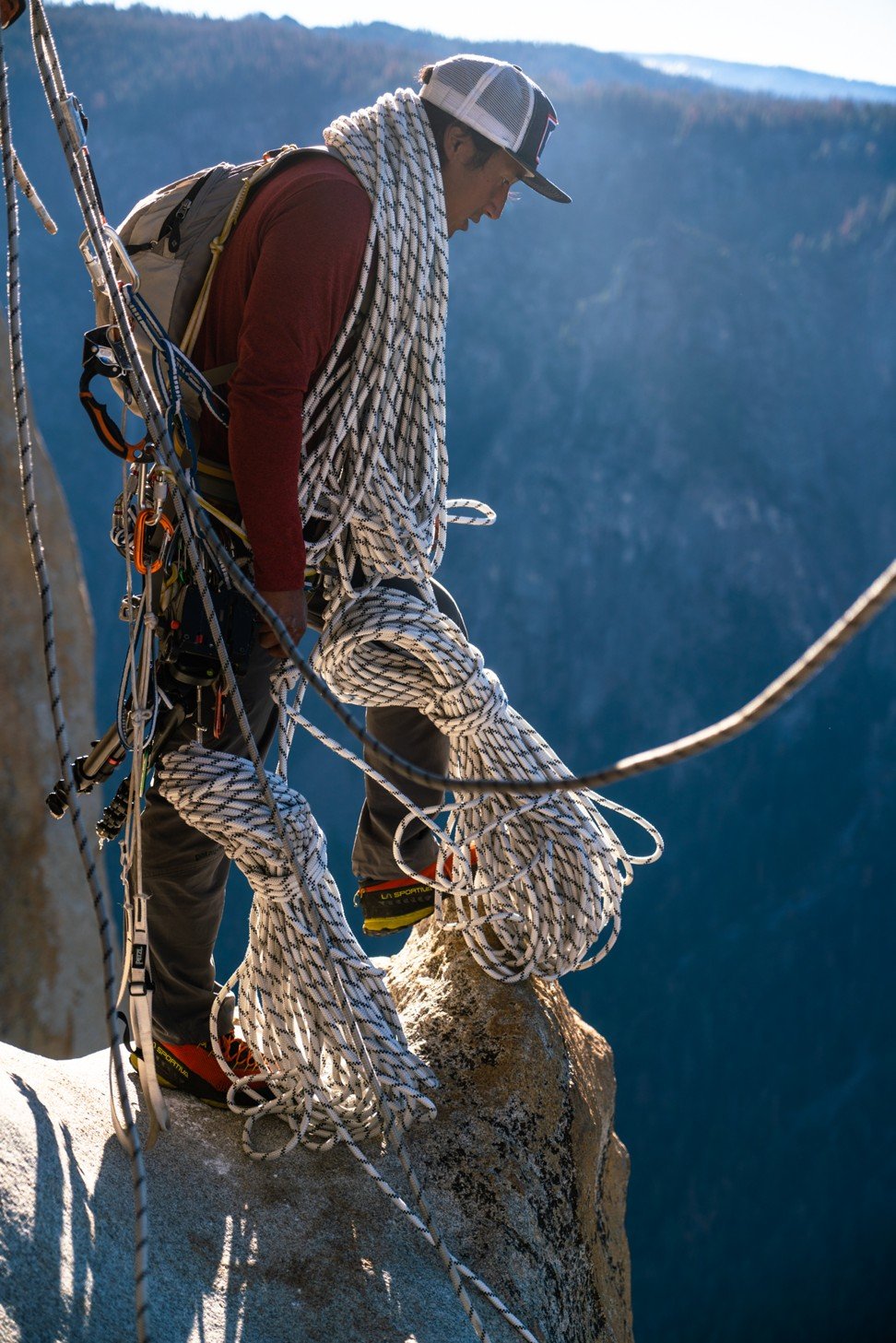
Many fellow career soloists, including John Bachar and Ueli Steck, fell to their deaths during similar daring climbs. Honnold does feel fear, insists Vasarhelyi, adding that the heart of the documentary is about his process and how he moves in his own fears and manages such response.
“He creates a fear bubble and practises [the routes] before taking on those risks,” she says. “That serenity you see in him [when he is climbing] – he has worked hard to do that.”
While the climber has mastered great control of his fear response, the people around him, particularly girlfriend Sanni McCandless, weren’t as adept at stifling their anxieties amid his quest to conquer El Capitan. Asked how the 33-year-old could put his loved ones through all this, Vasarhelyi says Honnold has thought of his mortality more than anyone she knows.
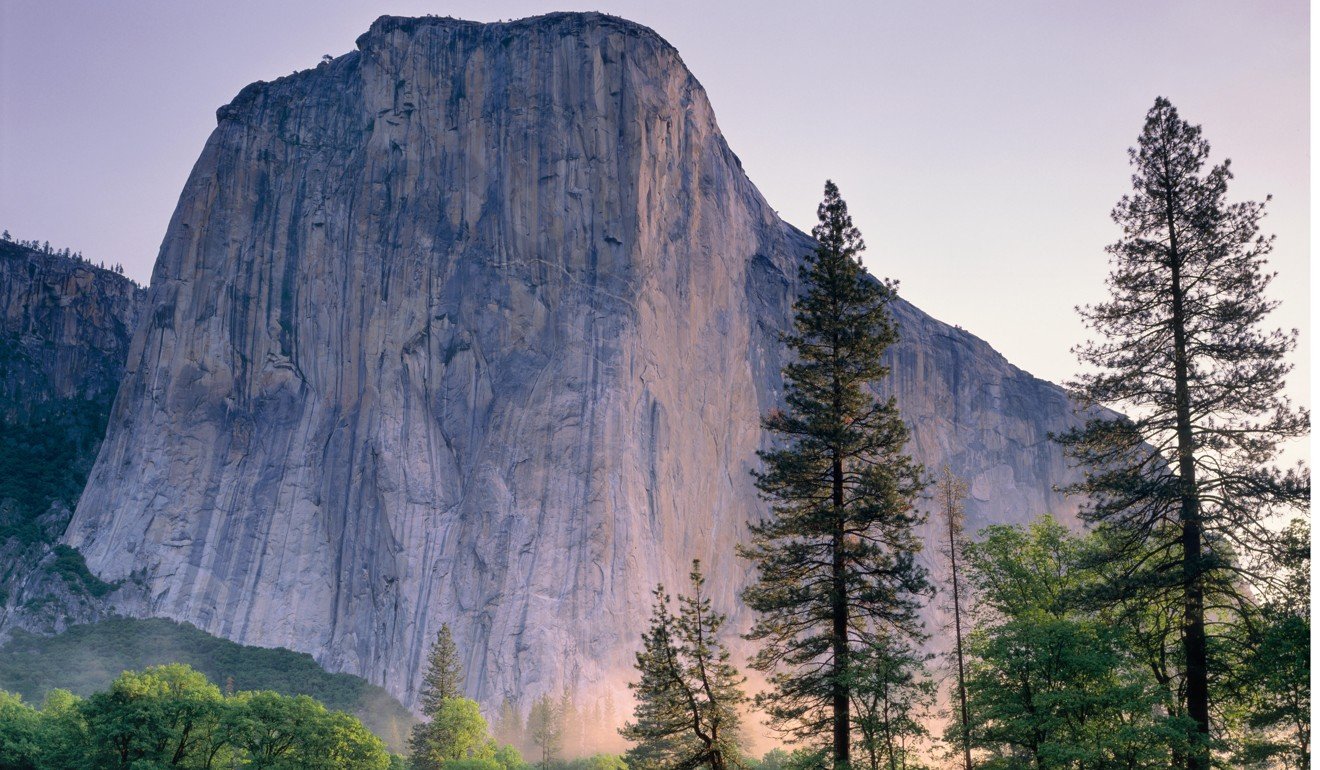
“He decided to live his life of intention and exactly the life he wants to live and he understands the risks,” says the former journalist who worked in Hong Kong for ABC NewsOne, an affiliate of the US television news channel, during the 1997 handover and whose mother is a born-and-raised Hongkonger.
Chin echoes such sentiment. “Look at it through the lens of anybody passionate about their work or their career or pursuits. I think you could be a very busy hedge fund manager who is never home and sacrifices a lot with his or her family or time with his or her children,” he says. “Anything that requires that kind of commitment to pursue excellence or something you are deeply passionate about, that comes with sacrifices.”
The filmmakers insist the free soloist is not an adrenaline junkie harbouring a death wish. “I never thought I had a death wish, as I really love climbing and this is why I do what I do,” says Chin, who is also a veteran professional climber, mountaineer and ski photographer.
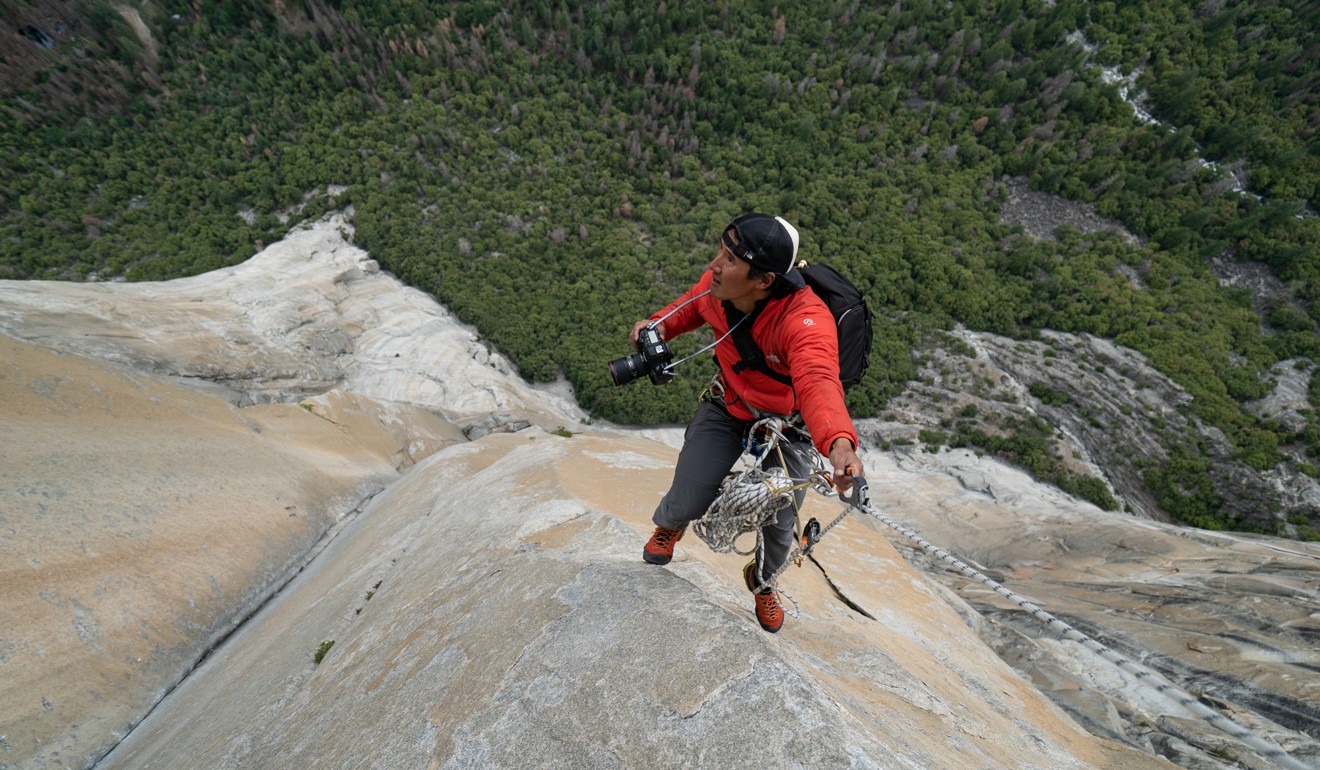
The film also addresses this misperception about climbing and adventure sports, he says.
“The point of doing what he is doing is: he wants to live the life that he wants to live and it’s very intentional, and if he had a death wish he wouldn’t have been practising for years and years the craft of free soloing and building up to this 10-year goal and spending two years of literally memorising every single hold and move [to achieve it] … People are lucky when they find that purpose and meaning.”
The members of the film crew are all elite professional climbers who understood such athletes’ mentality “on a visceral level”, according to Chin. “We chose the team carefully … they collectively probably climbed El Capitan 100 times so there is a deep knowledge of El Capitan, and also they had the physical capacity to do the shoot.”
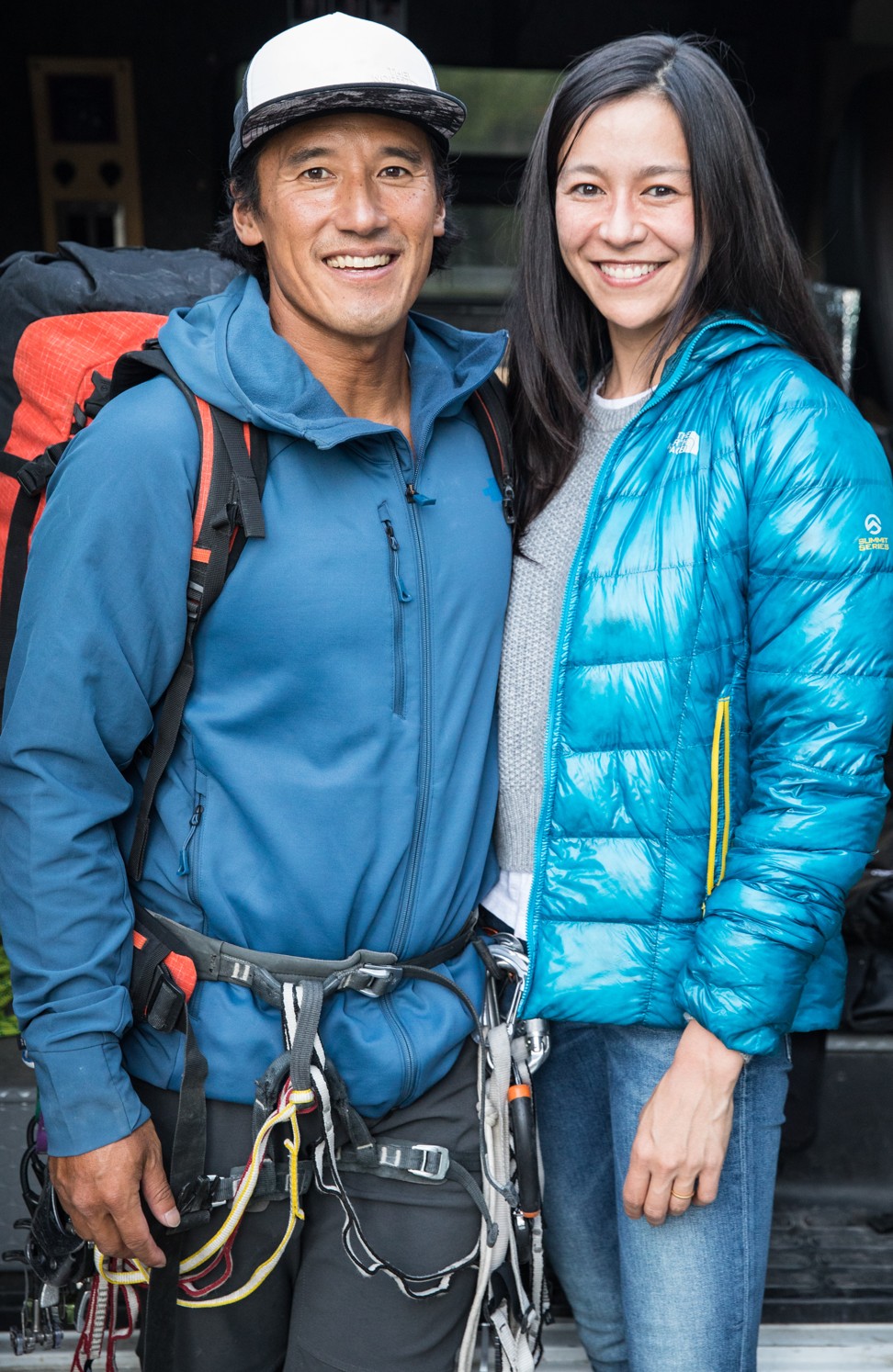
The film shows how Honnold trains for climbs, including exercises in his van on a specially built hangboard to do finger pull-ups. “By doing hangboard workouts you’re stretching tendons in fingers to eventually become like hooks,” says Chin. “The stronger your finger strength, the less fatigued you feel doing harder or smaller holds and you can hold on for longer periods of time.”
For general fitness, the best training for climbing Yosemite is climbing Yosemite. “If we’re on the road and can’t climb outdoors, we go to climbing gyms where you can get a lot of volume in doing many different moves in a short amount of time,” says Chin.
Yoga is another key practice to help improve flexibility. Core exercises and workouts on antagonistic elements like oppositional muscles are also essential.
“In climbing, you overdevelop a lot of muscles as you are using the same muscles,” Chin says, so you do exercises to maintain balance in the body and prevent injury from overuse of particular areas, resulting in issues such as elbow tendinitis, for example.
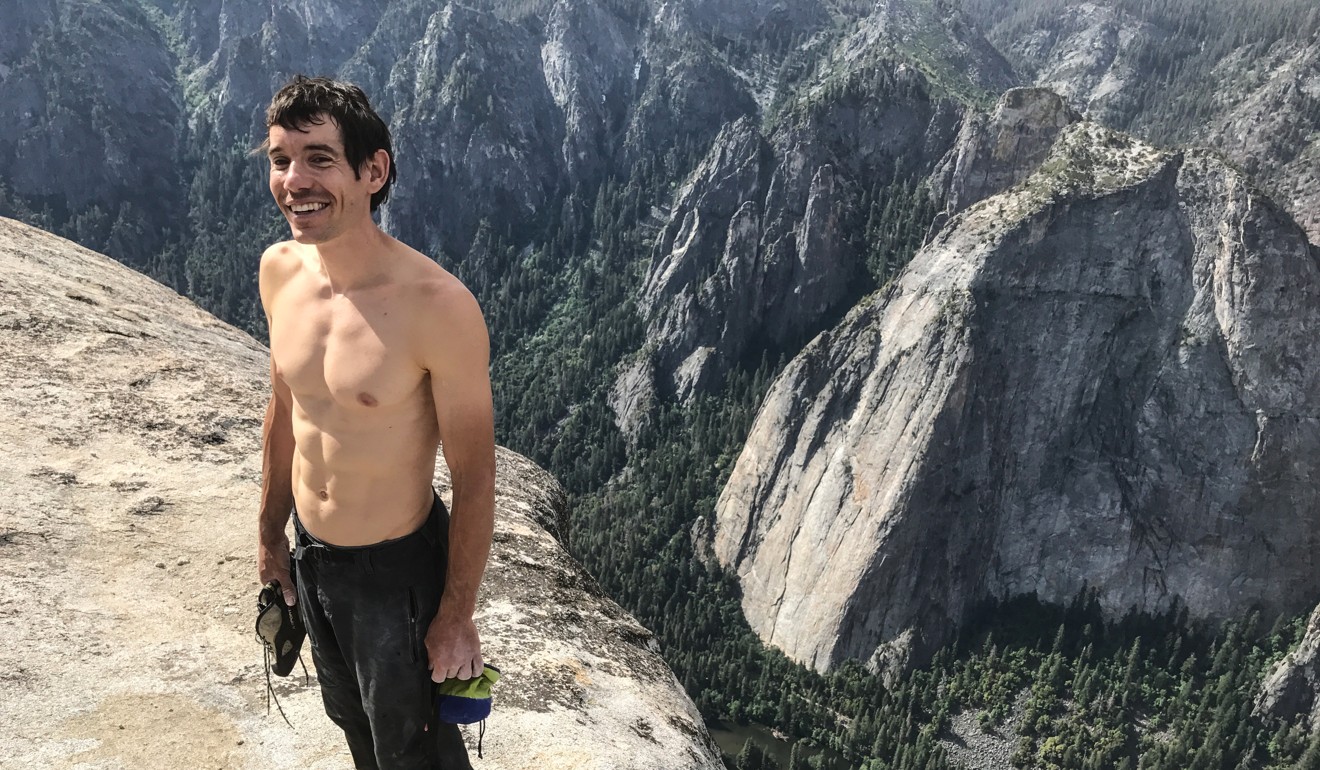
On why this film is resonating with audiences globally, Vasarhelyi believes people are responding to the athlete’s courage and life story.
Honnold began as a dorky youngster who started climbing solo to ease social anxieties, found a climbing partner and reached the pinnacle of the sport. The story also goes beyond climbing.
“Alex was free-soloing El Capitan but everyone has a ‘free solo’ in their lives, and it has nothing to do with the rock itself,” Vasarhelyi said. Especially in these times, it resonates with people who don’t believe they have the capacity to act independently and make their own free choices.
Free Solo will premiere in Hong Kong on April 6 at 9pm on the National Geographic Channel.





